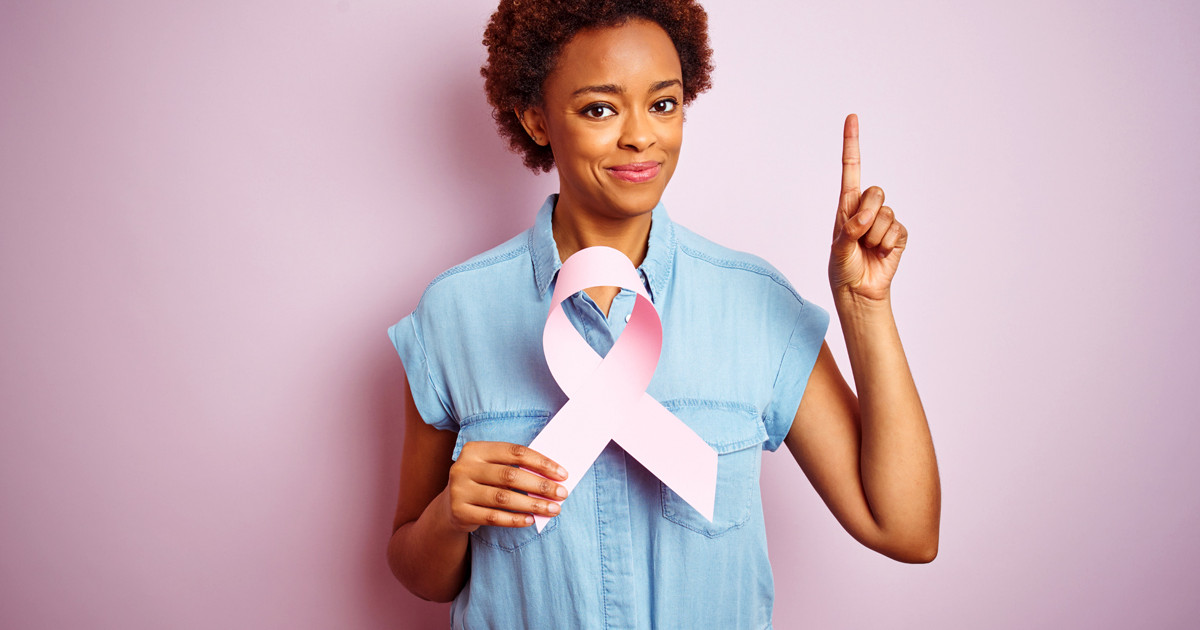6 Answers about Breast Cancer you should know

My first encounter with a breast cancer patient was during my general surgery rotation in medical school. On that fateful day, we were supposed to have what we called ‘grand rounds’. This meant that the entire general surgery team, (made up of consultants, residents, house officers, and medical students assigned to the team) would attend to each patient on admission in the wards.
Grand rounds were always interesting but what was particularly exciting to me on this day was that someone special was going to be around. The oldest general surgeon in the state at the time, a professor, medical elder or should I say a medical legend.
Particularly striking was the sincerely kind way he attended to each patient, the gentleness, enthusiasm and agility he displayed even though advanced in age and practice, and the passion with which he taught each of us on his team. My teammates and I always looked forward to Monday rounds because of the sheer excitement of having him around.
On this fateful day, we approached this particular patient’s bed. Our professor, walking in gentle strides, as always, and the rest of us tagging behind him. His graceful, white hair lay low like a crown on his head, matching the color of his white coat and white sneakers as he greeted the patient with his usual smile and inquired how she was feeling.
The woman on the bed looked like she could have been in her 50’s. She had no hair on her head and her face wore a look of gloom. Our professor began a conversation with her but she responded only reluctantly and in very low tones. Soon, I noticed tears flowing down her face and with a look of despair on her face, she asked “How much longer do I have to live doctor?”
My professor’s response to her struck me deeply. The conversation that followed revealed to the rest of us that Mrs. Odi had been diagnosed with breast cancer and had undergone several surgeries but the cancer had already spread to other parts of her body, which meant her condition was serious at that stage. That explained why she had no hair; the drugs administered to cancer patients usually have that effect after a while.
WHAT IS BREAST CANCER?
It is a cancer that forms in the cells of the breast.
Normal cells usually undergo a process of division by which they are able to grow and replace the older, weaker body cells. What happens in cancer is that the cells divide uncontrollably and very quickly which is abnormal.
HOW COMMON IS BREAST CANCER?
Breast cancer is the most common cancer in women worldwide. It occurs commonly in women but can also occur in men. Studies by the world health organization in 2018 showed that 627,000 women died from Breast cancer, and about 2.09million new cases were recorded worldwide.
In Nigeria, of all women that die yearly, 19.5% die of breast cancer.
WHAT MAKES A PERSON LIKELY TO HAVE BREAST CANCER?
The Centre for disease control (CDC) has classified the factors that make a person likely to have breast cancer into 2 categories:
A. Factors you can change:
- Not being physically active
- Being over weight or obese after menopause
- Taking hormones that have both estrogen and progesterone during menopause
- Drinking alcohol
- Smoking
B. Factors you cannot change:
1 .Getting older(bring 50years or older)
2. Genetic mutations
3.Early start of menstrual periods (before 12years of age) and late menopause(after 55years of age)
4. Family history of breast cancer or ovarian cancer
5. Previous treatment using radiation therapy
WHAT SIGNS AND SYMPTOMS WOULD A PERSON HAVE?
- A painless breast lump
- Discharge from the nipple
- Sores on the breast
- Redness and swelling of the breast
- Changes in the shape or texture of the nipple or breast.
YOU CAN LOWER YOUR CHANCES OF HAVING BREAST CANCER BY:
- Keeping a healthy weight
- Exercising regularly
- Avoid drinking alcohol or reduce intake
- Breast feed your children if possible
- Practicing breast self examination so you can detect any abnormal changes in your breast very early
- Speaking to your doctor about having periodic screening for breast cancer when necessary. You can speak with a doctor on the flexicare health insurance plan.
CAN BREAST CANCER BE TREATED?
Yes, breast cancer can be treated, especially if it is discovered early. Some of the treatment methods include:
- Surgery
- Drugs (chemotherapy)
- Radiation therapy
Well, back to Mrs.Odi’s question…
“DOES HAVING BREAST CANCER MEAN I AM GOING TO DIE?”
Well, the outcome of breast cancer depends on several factors such as:
- The type of cancer
- How early it is discovered
- Age of the patient
- The treatment given
Our professor’s response to Mrs. Odi’s question was indeed profound. “Look at me”, he said, a sober look on his face. I am an old man and I may not be sick, but, even I do not know how long I will live, “How long you will live is not for me to say madam, because that is a question I cannot answer for myself” .
The entire team was silent and sober, as our professor went on to tell her to enjoy every moment she had with those she loved.
Mrs. Odi’s countenance lifted a little and she wiped her tears, as her husband who, all along, was standing silently by her bedside embraced her reassuringly.

